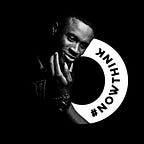Love and Cruel Optimism
Going through Berlant and Illouz’s ideas brings to fore basic ideas of what love is in the 21st century and how it falls short of the value placed on it to generate the good life and happiness. The three most important ideas from these readings include neoliberalism, capitalism, and the effect of the internet on love and romantic relationships.
The readings are quite complementary to the concept discussed in class in that they detail how the axiology of romantic love creates a scenario for cruel optimism. Where one might want to attain certain desirables, the fractured systems by which romantic love is propagated in the 21st century set the stage for its imminent doom. The idea of ‘the one’ within a context of multiple options creates a promise of permanence but the presence of options also in most cases leads to the downfall of the marriage.
I think that Illouz’s writing is spot-on with our social reality. She does well to point out that what drives this narrative is the capitalist-driven nature of romantic love. Also, the internet plays a major role to continually reaffirm the idea of romantic love as a pivotal achievement in one’s life. Much like the bride example given by Sara Ahmed in her article ‘Feminist Killjoys (And Other Willful Subjects)’, this places a high expectation of the good life with finding romantic love. Hence it is not that the people that love are actually intrinsically deficient, it is that they were promised happiness that love and passion cannot deliver on. This makes it a sufficient example of cruel optimism.
I think that love is more grill than it is fun. It takes a lot of work and compromises for it to work. A great example will be how families love. It is almost always not pleasant but as a whole, it provides for safety, emotional well-being, and support. I do not think romantic love is any different but it is promoted differently because that is what sells. To this I would say, it is not that ‘Love sells’ but that the false idea of love makes for great capitalism.
Readings:
Ahmed, S. (2010) “Feminist Killjoys (And Other Willful Subjects)”. The Scholar And Feminist Online 8 (3)
Illouz, E. (2012) Why Love Hurts. Cambridge, U.K.: Polity Press
Berlant, L. (2006) “Cruel Optimism”. Differences: A Journal Of Feminist Cultural Studies 17 (3), 20–35
McVeigh, T. (2012) Love Hurts More Than Ever Before (Blame The Internet And Capitalism) [online] available from <https://www.theguardian.com/lifeandstyle/2012/feb/12/love-marriage-romance-valentine> [9 June 2020]
